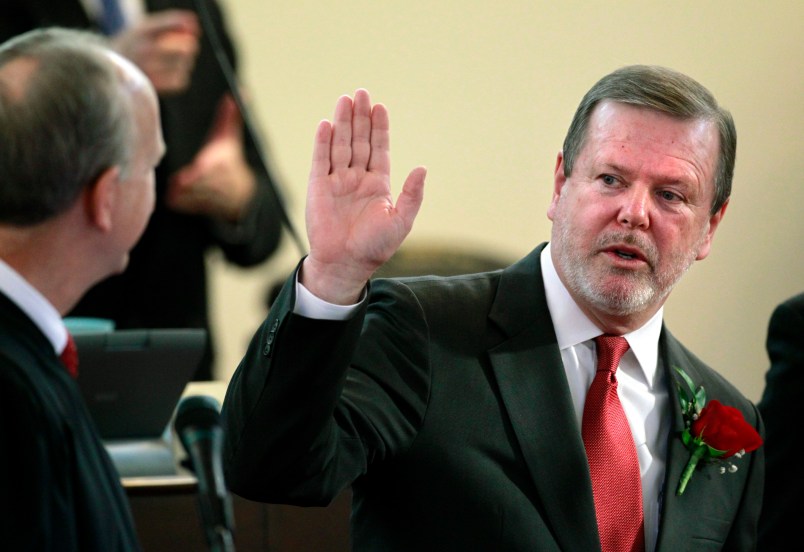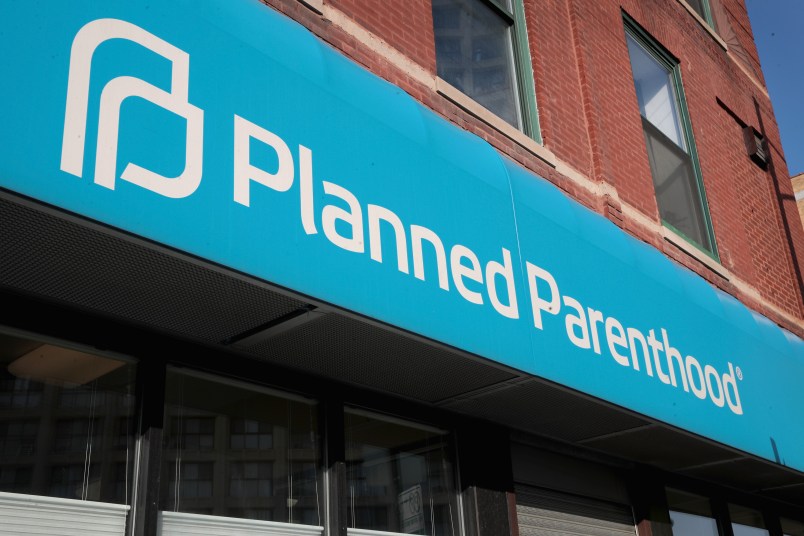In a surprise extra special session on Wednesday called with just hours notice, the Republican-led North Carolina state legislature introduced measures that would reduce the power of the incoming Democratic governor.
Legislators had convened to address disaster relief, but when the session called by lame duck Gov. Pat McCrory ended on Wednesday, the General Assembly quickly called a new special session to pass additional initially unspecified legislation.
Republican lawmakers’ last-minute attempt to limit the state governor’s powers comes after McCrory conceded in a tight re-election race to his Democratic challenger, state Attorney General Roy Cooper. McCrory dragged the race out for nearly a month beyond Election Day, using a flurry of ballot complaints to decry widespread voter fraud. But after complaints filed by Republicans were largely dismissed, McCrory finally conceded.
Republicans already have a supermajority in both houses of the General Assembly, empowering them to override vetos. But if the legislation introduced on Wednesday becomes law, Cooper will have even less power as governor.
Legislation introduced in the state House on Wednesday would mandate that the governor’s cabinet appointees be approved by the state Senate and would cut the number of political appointees that serve under the governor from 1,500 to 300. This comes after the legislature drastically expanded the number of “exempt positions,” which are often political in nature, under McCrory in 2013.
The bill would also eliminate the governor’s ability to appoint members to the board of trustees for the University of North Carolina System and to the state education board.
Republican legislators are also pushing for changes to the state elections board. Legislation in the state Senate would merge the State Board of Elections with the ethics commission, giving the new board subpoena power. It would also expand the board from five to eight members, with four members from each party.
This will eliminate Democrats’ control over the state election board. Currently, the state board is made up of five members, three from the governor’s party and two from the minority. So the new legislation would prevent Democrats from taking control over the state elections board when Cooper takes office. Legislation would also change the make-up of county boards, eliminating power from the governor’s party and making the boards completely bipartisan.
The new state elections board would be chaired by Republicans in even years — when most elections take place — and by Democrats in odd years, as Rick Hasen, an election law expert at UC-Irvine School of Law, noted on his blog.
The legislation would also make state Supreme Court elections partisan and shift some power from the state Supreme Court to the state court of appeals. In the November election, the state Supreme Court flipped to Democratic control, but there is still a Republican majority on the court of appeals.
House Rules Committee Chairman David Lewis (R) told local reporters on Wednesday that lawmakers wanted to “work to establish that we are going to continue to be a relevant party in governing this state,” according to the News and Observer.
Lewis acknowledged that Republicans introduced some of the legislation because of the 2016 election outcome.
“Some of the stuff we’re doing, obviously if the election results were different, we might not be moving quite as fast on, but a lot of this stuff would have been done anyway and has been talked about for quite some time,” he said, according to the News and Observer.
State Democrats were up in arms over the last-minute attempt by Republicans to curb Cooper’s power.
“This is why people don’t trust us, this is why they hate us … because of this right here — using hurricane relief as the reason to come back to Raleigh to do a lot of things because you lost an election by 10,000 votes,” Rep. Darren Jackson (D) said Wednesday night, according to the Associated Press.







